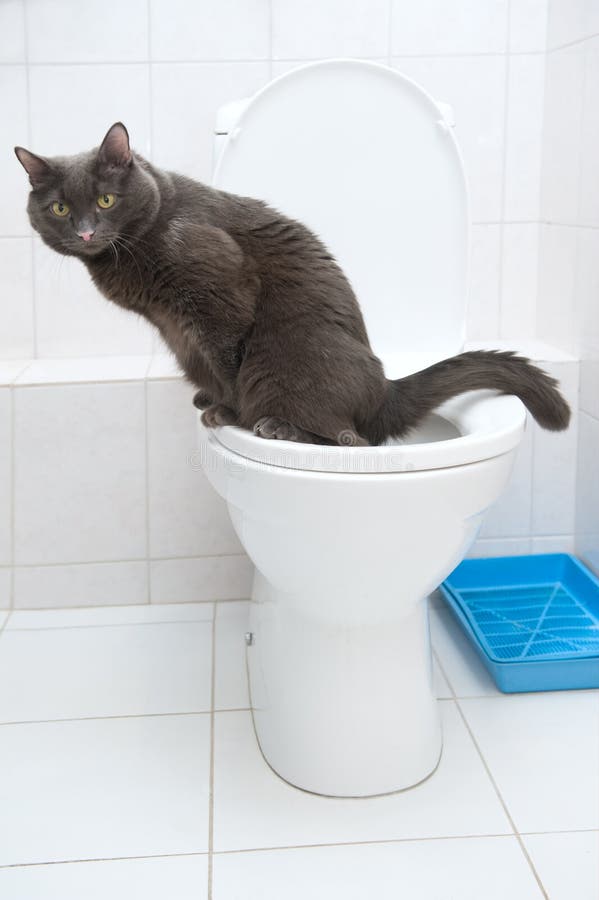The Risks of Flushing Cat Poop in Your Toilet - Preventive Steps
The Risks of Flushing Cat Poop in Your Toilet - Preventive Steps
Blog Article
Are you trying to locate selective information concerning Don’t flush cat feces down the toilet?

Intro
As pet cat owners, it's vital to be mindful of how we throw away our feline close friends' waste. While it might appear practical to purge cat poop down the bathroom, this practice can have harmful consequences for both the environment and human health.
Ecological Impact
Purging feline poop introduces harmful virus and bloodsuckers into the water supply, posing a substantial danger to aquatic ecosystems. These impurities can negatively influence aquatic life and compromise water high quality.
Health Risks
Along with ecological worries, flushing feline waste can also posture health dangers to human beings. Pet cat feces may include Toxoplasma gondii, a bloodsucker that can create toxoplasmosis-- a potentially extreme disease, specifically for expectant women and individuals with damaged immune systems.
Alternatives to Flushing
Fortunately, there are more secure and more liable means to deal with cat poop. Take into consideration the complying with choices:
1. Scoop and Dispose in Trash
The most usual technique of disposing of cat poop is to scoop it into an eco-friendly bag and throw it in the garbage. Make sure to make use of a dedicated litter scoop and throw away the waste promptly.
2. Use Biodegradable Litter
Opt for biodegradable pet cat trash made from materials such as corn or wheat. These clutters are eco-friendly and can be safely disposed of in the garbage.
3. Bury in the Yard
If you have a backyard, think about hiding feline waste in a marked area away from veggie yards and water sources. Be sure to dig deep adequate to avoid contamination of groundwater.
4. Install a Pet Waste Disposal System
Buy a pet dog garbage disposal system especially made for pet cat waste. These systems make use of enzymes to break down the waste, reducing smell and environmental effect.
Conclusion
Liable animal possession extends beyond giving food and shelter-- it likewise entails proper waste management. By refraining from flushing cat poop down the toilet and choosing alternate disposal techniques, we can reduce our environmental impact and shield human wellness.
Why You Should Never Flush Cat Poop Down the Toilet
A rose by any other name might smell as sweet, but not all poop is created equal. Toilets, and our sewage systems, are designed for human excrement, not animal waste. It might seem like it couldn’t hurt to toss cat feces into the loo, but it’s not a good idea to flush cat poop in the toilet.
First and foremost, assuming your cat uses a litter box, any waste is going to have litter on it. And even the smallest amount of litter can wreak havoc on plumbing.
Over time, small amounts build up, filling up your septic system. Most litter sold today is clumping; it is made from a type of clay that hardens when it gets wet. Ever tried to scrape old clumps from the bottom of a litter box? You know just how cement-hard it can get!
Now imagine just a small clump of that stuck in your pipes. A simple de-clogger like Drano isn’t going to cut it. And that means it’s going to cost you big time to fix it.
Parasitic Contamination
Believe it or not, your healthy kitty may be harboring a nasty parasite. Only cats excrete Toxoplasma in their feces. Yet it rarely causes serious health issues in the cats that are infected. Most people will be fine too if infected. Only pregnant women and people with compromised immune systems are at risk. (If you’ve ever heard how women who are expecting are excused from litter cleaning duty, Toxoplasma is why.)
But other animals may have a problem if infected with the parasite. And human water treatment systems aren’t designed to handle it. As a result, the systems don’t remove the parasite before discharging wastewater into local waterways. Fish, shellfish, and other marine life — otters in particular — are susceptible to toxoplasma. If exposed, most will end up with brain damage and many will die.
Depending on the species of fish, they may end up on someone’s fish hook and, ultimately on someone’s dinner plate. If that someone has a chronic illness, they’re at risk.
Skip the Toilet Training
We know there are folks out there who like to toilet train their cats. And we give them props, it takes a lot of work. But thanks to the toxoplasma, it’s not a good idea.

We had been guided to that editorial on How to Dispose of Cat Poop and Litter Without Plastic Bags from a friend on our other domain. Are you aware of anybody else who is involved in the subject? Why not share it. Thanks for going through it.
Estimate Free Report this page